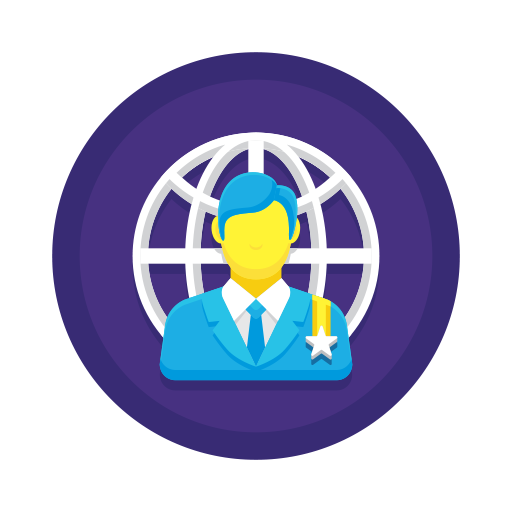Personalized Learning Paths for Every Student
AI agents have the ability to tailor educational experiences according to each student’s unique learning style, pace, and needs. By analyzing data such as past performances and engagement levels, AI systems customize lesson plans, helping bridge gaps in understanding. According to Emergen Research, 77% of educational professionals believe that personalized AI-driven instruction significantly boosts student comprehension and retention.
This personalized approach ensures that all students, whether advanced or struggling, can learn at a pace that suits them while receiving targeted content that builds on their strengths and addresses their weaknesses. For example, a student excelling in mathematics may receive advanced problem sets, while another who struggles might receive additional resources and support to master fundamentals.
Automated Grading and Consistent Assessment
AI agents streamline the grading process by evaluating student work swiftly and consistently. This automation not only alleviates educators’ workload but also provides unbiased assessments. Forbes highlights that using AI for grading can reduce teacher administrative duties by up to 30%, allowing more time for one-on-one student interactions and enhancing the quality of education delivered.
In addition to managing standard assessments, AI can assist in grading complex assignments, such as essays, by evaluating grammar, coherence, and comprehension. This helps maintain a consistent grading standard while freeing educators to focus on developing teaching strategies or engaging with students directly.
Immediate Support and Real-Time Feedback
AI-powered chatbots and virtual assistants offer students immediate support and feedback, extending the learning experience beyond the classroom. By providing instant answers to questions and suggestions for improvement, these AI agents keep students engaged and committed to their learning journeys. Research by EdTech Magazine reveals that interactive AI tools can increase student engagement by 50%, transforming passive learners into active participants.
These systems excel by offering round-the-clock assistance, enabling students to explore learning materials and clarify doubts at their own pace, encouraging a sense of independence and fostering lifelong learning.
Enhanced Accessibility for Remote and Underserved Students
AI agents make quality education accessible, especially to students in remote regions or with limited resources. They deliver on-demand tutoring and personalized guidance, bridging educational gaps that exist due to geographic or socio-economic disparities. Studies by the World Economic Forum have shown that such technological interventions can increase the availability of educational resources by 40%, making learning more equitable for all.
For instance, students in rural areas can access high-quality lessons and resources that were previously out of reach, creating a unified educational landscape where geography is no longer a barrier.
Efficient Administration Through Task Automation
AI-driven automation simplifies administrative tasks such as grading, attendance tracking, and responding to routine inquiries. By automating these responsibilities, AI agents free up valuable time for educators to concentrate on high-value, interactive teaching moments with their students. This optimization not only enhances the school’s operational efficiency but also boosts educational quality and responsiveness.
Moreover, by streamlining administrative workflows, schools can reduce operational costs, allocate resources more effectively, and invest in educational technologies that generate superior student outcomes.
Data-Driven Insights: Guiding Targeted Interventions
AI systems produce valuable data-driven insights regarding student performance, enabling educators to identify areas of strength and concern. Armed with these insights, teachers can implement targeted interventions tailored to meet the needs of each student. According to TechRepublic, schools that utilize data analytics in education see a 20% improvement in student success rates.
With AI-assisted data analysis, educators can promptly adjust their teaching methods to meet evolving student needs, creating adaptive learning environments that benefit the entire classroom.
Engagement and Motivation Through Interactive Learning
AI agents transform conventional learning into engaging, interactive experiences through simulations, gamified lessons, and responsive feedback. By incorporating elements of play, AI makes education captivating and fun, encouraging students to experiment and become active participants in their learning. Inside Higher Ed reports that such immersive learning experiences can enhance motivation by more than 30%, inspiring students to explore and learn with curiosity.
Through interactive technologies, students gain a deeper understanding of concepts, as they experience firsthand how abstract theories are applied in real-world scenarios.
Continuous Improvement: Adapting Instruction on the Fly
AI-driven educational environments continuously adapt instructional strategies based on real-time performance and engagement data. This approach ensures optimal comprehension and knowledge retention while fostering an atmosphere of constant development. Collaborative AI systems learn from each teaching interaction, refining educational strategies with every iteration.
Educators and administrators can leverage these advancements to prepare personalized development plans for learners, tailoring each educational journey to maximize potential and achievement levels.
Extending the Possibilities
Eduaide.Ai
Brisk Teaching
Quizizz
Khanmigo
Flint
Noem.ai: A Holistic AI Agent Experience
A Bright Future for AI in Education
AI agents are indeed revolutionizing education by offering personalized, adaptive, and efficient learning opportunities, setting students and educators on paths toward success. The possibilities are vast as AI continues to innovate, promising to make education more inclusive, equitable, and impactful for learners worldwide.
As we embrace AI in education, platforms offering intelligent agent capabilities, like Noem.ai, can cultivate rich, engaging, and effective learning environments that transcend traditional borders and limitations. These advancements not only prepare students for the future but also empower educators to teach with greater insight and creativity.









